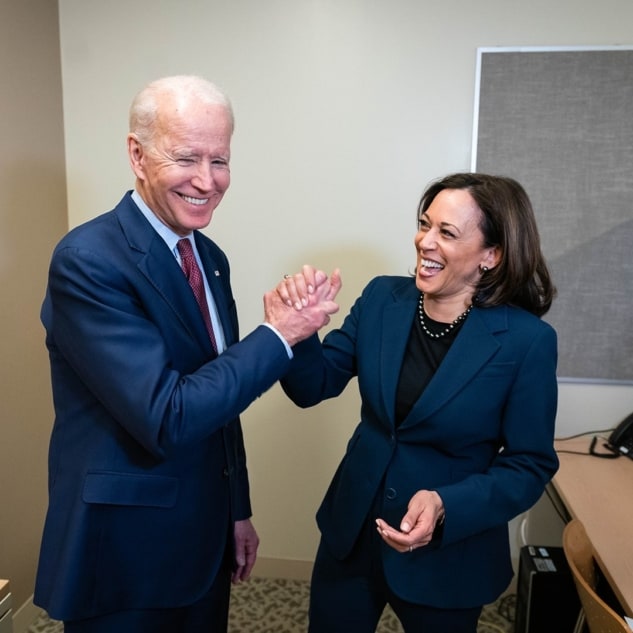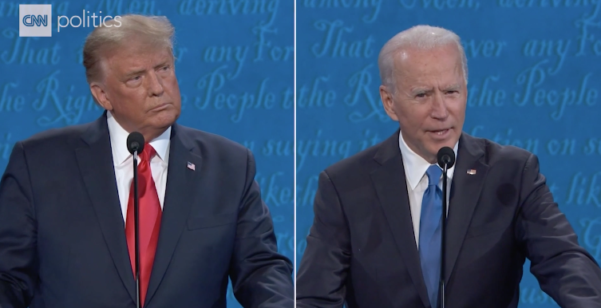Trump’s Latest Ploy to Deny Disability Benefits

The Trump administration has been trying for four years to find crafty ways to deprive workers of their Social Security Disability Insurance (SSDI) benefits. Recent reporting indicates that the administration is still at it – even in the waning days of Trump’s presidency. This week, The Hill reported:
“The Social Security Administration (SSA) sent the Trump administration’s Office of Management and Budget (OMB) a proposal that — if similar to a version leaked earlier this year — will bar Social Security benefits from hundreds of thousands of Americans. The document that leaked suggests the proposal could ultimately prevent as many as 500,000 Americans from receiving benefits.” – The Hill, 12/7/20
Simply put, the proposal would make it harder for older workers to qualify for SSDI benefits. Under current law, the Social Security Administration (SSA) must consider an applicant’s age in determining whether that worker “meets the statutory definition of disability.” The Trump administration’s proposal would diminish age as an eligibility factor for receiving benefits.
“The proposed rule would no longer assume age seriously affects a person’s ability to adapt to simple, entry-level work. It would raise the age at which education and work experience are considered in determining eligibility to 55, from 50.” – Wall Street Journal, 1/10/20
The assumption behind the proposal is: in an increasingly service-oriented economy where people are living longer, middle-aged workers should be able to find new jobs compatible with their disabilities. But, as disability advocates have pointed out, “improvements in average health and life expectancy vary sharply by socioeconomic group and education level.” The proposal, then, would punish disabled workers on the lower rungs of the ladder by denying them disability benefits.
The new proposal is the latest in a fusillade of rules from the Trump administration targeting workers with disabilities. Most recently, Trump’s SSA began finalizing two insidious new rules. One rule would replace the administrative law judges (ALJs) who decide disability appeal cases with politically-motivated agency lawyers. ALJ’s are impartial; SSA attorneys may try to deny benefits based on ideology rather than the needs of disabled workers.
The second rule would add a new level of Continuing Disability Reviews (CDRs), imposing an unnecessary burden on disabled beneficiaries to prove that they are still eligible — and may cause some to lose their benefits altogether.
The ranking member of the Senate Finance Committee, Sen. Ron Wyden (D-OR), said that these new rules “would weaken the promise of Social Security for Americans struggling with a disability.”
The incoming Biden administration could rescind Trump’s ALJ and CDR rules, which are scheduled to take effect on Dec.16. As for the new proposal that would make it harder for older workers to obtain SSDI benefits, The Hill reports that it could “slip through” the regulatory process unless SSA and the Office of Management and Budget decide to “respect the formal regulatory process.” If the new proposal is enacted, it would then be up to President-elect Biden or Congress to reverse it.
Seniors’ Priorities for the Lame Duck Congressional Session



Congress is now in ‘lame duck’ session until January. Though this is normally a time when expectations for Congressional action are low, the National Committee expects our elected representatives to act on behalf of seniors and other struggling Americans hit hard by the pandemic. NCPSSM president and CEO Max Richtman has just sent a letter to Congress requesting action on several high priority issues for seniors.
“On behalf of the National Committee to Preserve Social Security and Medicare’s millions of members and supporters, I am writing to urge you and your colleagues to prioritize the needs of America’s seniors as you consider funding legislation during the remaining days of the 116th Congress.” – Max Richtman, president and CEO, National Committee to Preserve Social Security and Medicare
Seniors are the hardest hit by the coronavirus pandemic. Eight out of 10 deaths from COVID in the U.S. have been in adults 65 years old and older. Whether as part of an omnibus funding bill, continuing resolution or COVID relief package, The National Committee is urging lawmakers to pass urgently needed measures for seniors, including:
The “Notch”
Unless Congress takes action, workers born in 1960 and 1961 will take a hit in their future Social Security retirement benefits, because of the Corona-induced decline in the average wages used to calculate those benefits. We support Congressman John Larson’s “Social Security COVID Correction and Equity Act” which would correct this notch in benefits for this age group without affecting other beneficiaries.
Social Security Boost
The 2021 Social Security cost-of-living adjustment (COLA) is a scant 1.3% (or $20 more per month for the average beneficiary). This is not sufficient to mitigate the financial pain that many seniors are experiencing during the pandemic. Rep. Peter DeFazio has introduced a bill (H.R. 8598) to provide beneficiaries with a 3% monthly increase (or a $250 per month flat increase), which would go a long way toward helping seniors meet their expenses during the current crisis.
Payroll Tax Deferrals
In August, President Trump issued an executive order allowing employers to defer workers’ payroll tax contributions for the rest of the year. Between January 1, 2021 and April 30, 2021, these employees will be required to pay back their deferred payroll taxes. As a result, the amount of their FICA taxes will double for the first four months of 2021. The National Committee supports easing the burden for workers affected by this hardship.
Medicare & Medicaid Extenders
The National Committee urges Congress to extend a handful of protections for lower-income Medicare and Medicaid beneficiaries, including ‘Money Follows the Person’ (which provides funding for states to help skilled nursing care patients to remain in their homes) and impoverishment protections for the spouses of Medicaid recipients receiving long-term care.
Outlook
Some of the items on this lame-duck wish list could be incorporated in to a continuing resolution (CR) that Congress must pass by December 11th in order to keep the government funded. Others would require separate legislation. Any measures improving Social Security benefits would need to clear a 60-vote hurdle in the Senate. Based on what we’ve seen so far, GOP Majority Leader Mitch McConnell is unlikely to clear the path for any legislation improving Social Security. The Senate runoff elections in Georgia will determine whether he will maintain the power to obstruct during the 117th Congress, or whether a new majority which cares about seniors’ needs will take over.
*****************************************************
For more news and insight, visit our Lame Duck Session webpage.
What can President-Elect Biden Achieve for America’s Seniors?



President-elect Joe Biden campaigned as a champion for older Americans. His election victory gives seniors new hope at a time when the incumbent President has put their lives — and their earned benefits — in jeopardy. That is why the National Committee broke with 38 years of precedent to endorse Joe Biden for President, after exclusively focusing on Congressional races in the past. National Committee president and CEO Max Richtman issued the following statement on Saturday congratulating President-elect Biden:
“Joe Biden’s victory in this historic election is a decisive win for the working class, for seniors, the disabled and their families — and a crucial victory for the two lifeline programs they depend on, Social Security and Medicare. National Committee members joined voters around the country to help elect a president who will defend, not defund, their earned benefits. They cast their ballots for the candidate who will protect their lives and livelihoods.”
“While Donald Trump tried to turn the clock back more than 80 years and undo the legacy of Franklin Roosevelt’s New Deal, Joe Biden will build on the progress of past decades toward a brighter future for working Americans and retirees. That is why the National Committee, founded by President Roosevelt’s son, Congressman James Roosevelt, Sr., endorsed Joe Biden for President.” – Max Richtman, president and CEO, National Committee to Preserve Social Security and Medicare
As we do every election cycle, the National Committee also endorsed scores of seniors’ champions for House and Senate. While Democrats maintained their majority in the House, control of the Senate now hinges on the outcome of two runoffs in Georgia on January 5, 2021. Those results will also determine how much of Joe Biden’s plan for older Americans can actually be enacted. We asked the National Committee’s director of government relations and policy, Dan Adcock, about the likely outcomes for seniors.
Is Biden’s victory a victory for older Americans?
Dan Adcock: Biden clearly is going to be a president who will protect Social Security and Medicare, and is inclined to support making benefit improvements and strengthening the solvency of both programs. With Joe Biden in the White House, Republicans are unlikely to be able to move forward with “entitlement reform,” which really means cutting benefits. So Joe Biden can serve as a firewall against harmful changes to Social Security and Medicare while pushing to expand both programs. Most importantly, we no longer will have a president intent on cutting the social insurance safety net.
What becomes of Trump’s payroll tax deferral?
Dan Adcock: I think the payroll tax deferral is a dead letter with Trump on his way out. Even if Republicans maintain control of the Senate, GOP leaders do not seem to support payroll tax cuts. Senator Chuck Grassley, chair of the Senate Finance Committee, said he was opposed to the President’s payroll tax deferral. Then there is the issue of whether employees who received a payroll tax deferral will have to repay the government in 2021. We would be inclined to say that those payroll taxes should be forgiven, that Social Security be reimbursed for the lost funds through general revenue, though we generally do not favor using general funds for Social Security as it undermines the earned benefit nature of the program.
What’s at stake for seniors in the upcoming Georgia Senate runoffs?
Dan Adcock: Older Americans have a lot at stake in the Georgia runoffs, as control of the Senate rests on these two races: Rev. Raphael Warnock (D) vs. Kelly Loeffler (R), and John Ossoff (D) vs. Sen. David Perdue (R). With a Democratic Senate majority, President-elect Biden would have a much better chance of making good on his promises to expand and protect Social Security and Medicare, and to allow Medicare to negotiate prescription drug prices, among other actions. Without a Democratic majority, it’s a much tougher climb, though Republicans may agree to modest measures for lowering drug costs, such as the Grassley-Wyden bill which includes price controls but no negotiation with Big Pharma.
Can President-elect Biden enact his health care agenda?
Dan Adcock: If the Supreme Court strikes down all or part of the Affordable Care Act, President-elect Biden will have a better chance to replace or fix strengthen it with a Democratic Senate. However, one would like to think that if the entire law is invalidated, including the provisions that improve Medicare, the Senate might go along with legislation that would restore those particular provisions – especially since Medicare is incredibly popular. The same might be said with protections for patients with pre-existing conditions. The rest of Biden’s health care agenda may be tough-going if Democrats don’t wrest back control of the Senate.
What is the impact of the election on Social Security?
Dan Adcock: Well, first of all, we will not have a president who promised to “terminate” the payroll taxes that fund Social Security, which would have bankrupted the program. Joe Biden calls Social Security a “sacred obligation” and has promised to strengthen and expand it. He wants to extend Social Security’s solvency by adjusting the payroll wage cap so that earners making over $400,000 begin paying into the system, in other words, paying their fair share. He also wants to adopt a more accurate formula for calculating cost-of-living adjustments (COLAs). Again, these improvements are much more likely to be enacted if Democrats take control of the Senate. Short of that, Biden may have a difficult time getting them through. Of course, we will continue to advocate for these improvements on behalf of our members and supporters regardless of who wins the Senate majority.
What can President-elect Biden do for seniors through executive action?
Dan Adcock: Biden can reverse Trump administration rules aimed at making it more difficult for people with disabilities to continue claiming Social Security Disability Insurance (SSDI) benefits. The President-elect can also reverse President Trump’s attempts to politicize the adjudication process for disability benefits by sidelining administrative law judges in favor of political appointees. Another important measure that President-elect Biden could take is rewriting rules so that Social Security beneficiaries who received accidental overpayments during the pandemic can keep those benefits, given the dire circumstances that COVID has inflicted on seniors. The Biden administration also is unlikely to continue the Trump team’s promotion of for-profit Medicare Advantage (MA) plans over traditional Medicare – a pattern that we have seen during the past four years of steering enrollees toward MA. Finally, we almost certainly won’t see the President-elect submitting budgets proposing to cut Social Security, Medicare, Medicaid, and federal programs that provide the elderly with nutrition, work and volunteer opportunities, and assistance heating their homes in the winter.
Follow developments affecting seniors during the Lame Duck period of the U.S. Congress and the presidency on our new Lame Duck Session webpage.
A Democratic Senate is Key to Seniors’ Financial & Health Security



Whether Donald Trump or Joe Biden wins the presidency, American seniors will be better off if Democrats take control of the Senate. Since 2019, the Democratic-controlled House has served as a firewall against Trump’s efforts to defund, cut, and privatize Social Security and Medicare. But as long as Republicans control the Senate, legislation to protect and expand seniors’ earned benefits will remain in limbo. Under a Democratic majority, though, seniors would likely see real progress where their financial and health security are concerned.
Senate majority leader Mitch McConnell (who aptly calls himself the “Grim Reaper”), has buried legislation that would have benefitted seniors — not to mention his refusal to take up last May’s House-passed COVID relief bill as the virus continues to ravage older Americans. The most glaring example is the Lower Drug Costs Now Act (H.R. 3), which the House passed last December.
H.R. 3 would allow Medicare to negotiate prescription prices with Big Pharma, which would save the government and seniors nearly $350 billion in drug costs. The bill would also add dental, vision, and hearing benefits to traditional Medicare. It represents the biggest step forward in lowering seniors’ health care costs in a generation, but Mitch McConnell won’t bring it up for a vote.
Leader McConnell will not even allow a vote on the bipartisan Prescription Drug Pricing Reduction Act (introduced by Senators Grassley and Wyden). Grassley-Wyden doesn’t include Medicare drug price negotiation, but it would spare seniors some financial pain at the pharmacy counter and is far better than doing nothing.
If the Supreme Court strikes down the Affordable Care Act, which strengthened Medicare’s finances and included enhanced benefits for seniors (not to mention protecting older patients with pre-existing conditions), a Democratic House and Senate could replace or revise it. Needless to say, if Joe Biden wins, his progressive health care proposals would have a far better chance in a Senate under Democratic control.
Seniors would not only be physically healthier in this scenario, but financially better off, too. The House has been considering landmark legislation to strengthen and boost Social Security benefits. The Social Security 2100 Act, introduced by Rep. John Larson (D-CT), would keep the program financially healthy through the end of the century, while boosting benefits for all retirees. Joe Biden has already embraced many of the proposals in this bill and has his own plan to expand Social Security. The Democrats could effectively counter conservative proposals to cut (and privatize) the program.
A Democratic-controlled Senate could mitigate COVID’s deleterious effects on current and future retirees’ Social Security benefits. Under new leadership, the Senate could increase the paltry 1.3% cost-of-living adjustment (COLA) to 3% for 2021, which would be welcome news for older Americans who lost their jobs during the pandemic and are forced to retire early — and for seniors already struggling to pay their bills. The Senate could also prevent workers born in 1960 (and possibly 1961, as well) from suffering a lifetime reduction in their future benefits caused by a COVID-related drop in average wages.
Mitch McConnell will continue to block progress for America’s seniors. A Democratic Senate would bulldoze McConnell’s wall of obstruction. Even President Trump, no friend to American seniors through his tampering with (and proposed cuts to) Social Security and Medicare, would likely feel pressure to work with a Democratic-controlled Senate if he wins re-election. It’s the only way (besides failed executive orders) that he could claim legislative success in a second term.
The Democrats only need to flip at least 3 seats in order to regain control of the Senate. Based on current polling, the odds are in their favor. The National Committee has endorsed several Democratic Senate candidates looking to unseat incumbent Republicans. (View our list of endorsed candidates for the 2020 cycle here.)
This isn’t about partisanship. It’s about choosing elected representatives who believe seniors deserve a genuine commitment to protecting their much-needed retirement and health benefits. It’s about electing those who will stand for protecting patients with pre-existing conditions like diabetes, heart disease, and cancer. It’s about sending public servants to Capitol Hill who can enact a comprehensive federal response to the pandemic that current leadership has failed to produce. To ensure a safe and prosperous future, seniors and their families must vote wisely — and make sure their votes count.
Social Security, Medicare Make Unexpected Appearance in Last Night’s Debate



Social Security and Medicare were not on moderator Kirsten Welker’s topic list during last night’s presidential debate, but some issues are too important to ignore. The candidates themselves broached the issue of Americans’ earned benefits about 24 minutes into the debate, with President Trump accusing Joe Biden of “talking about destroying your Medicare and destroying your Social Security.”
It’s a patently ridiculous assertion, grounded not in fact but in the president’s warped perceptions of reality. The timing of his remark is especially notable since the President himself took a step that could lead to the dismantling of Social Security. On August 8th, he issued an order suspending the payroll tax contributions that workers make toward their Social Security retirement benefits. At the same time, he pledged to “terminate” Social Security payroll taxes if re-elected, which would effectively defund the entire program – and seniors’ benefits along with it.
Joe Biden punched back against Trump’s allegation quickly, reminding voters who truly is threatening older American’s financial and health security.
“This is the guy who’s tried to cut Medicare. The idea that Donald Trump is lecturing me on Social Security and Medicare? The actuary of Social Security said… if [Trump] continues his plan to (terminate) the tax on Social Security, Social Security will be bankrupt by 2023 with no way to make up for it.” – Joe Biden, presidential debate, 10/22/20,
Of course, that is exactly what the Social Security actuary estimated last month in a letter to members of Congress concerned about the impact of eliminating payroll taxes, if they weren’t replaced by general revenue.
The President and his advisors have had a pattern of attempting to undermine Social Security these past three and a half years. But his reckless payroll tax policy was the ‘last straw’ for the National Committee to Preserve Social Security and Medicare. In September, we broke with 38 years of precedent and endorsed Joe Biden for president. Before that, we had stayed out of presidential races, focusing on Congressional elections instead. But at that point we felt we had no choice.
“Never in our organization’s history have we seen such a consistent level of threats to the health and retirement security of America’s seniors. There is no doubt that the most effective way to protect the future for older Americans is to elect Joe Biden as president.” – National Committee president Max Richtman, 9/17/20
As for Medicare, Joe Biden correctly said that President Trump has repeatedly tried to cut Medicare. Each of the annual Trump budget proposals have called for slashing Medicare by billions of dollars. The Trump administration has also undermined traditional Medicare by unfairly promoting for-profit Medicare Advantage plans in its outreach and enrollment materials. Biden also reminded voters that, as President, he will sign legislation finally allowing Medicare to negotiate prescription drug prices with Big Pharma, which would significantly reduce drug costs and save the program $345 billion over 10 years.
“We’re going to make sure we reduce the premiums and reduce drug prices by making sure that there’s competition, that doesn’t exist now, by allowing Medicare to negotiate drug prices with the insurance companies.” – Joe Biden, presidential debate, 10/22/20
These discussions of Social Security and Medicare – though all too rare in the 2020 primary and general election debates – could not have made the differences between the two candidates clearer. If given a second term, President Trump will cut and undermine Medicare — and defund Social Security, leaving the 69 million Americans who depend on their earned retirement and disability benefits out in the cold. Joe Biden has a plan to strengthen and expand both programs. That’s the truth. And it truly is not debatable.


